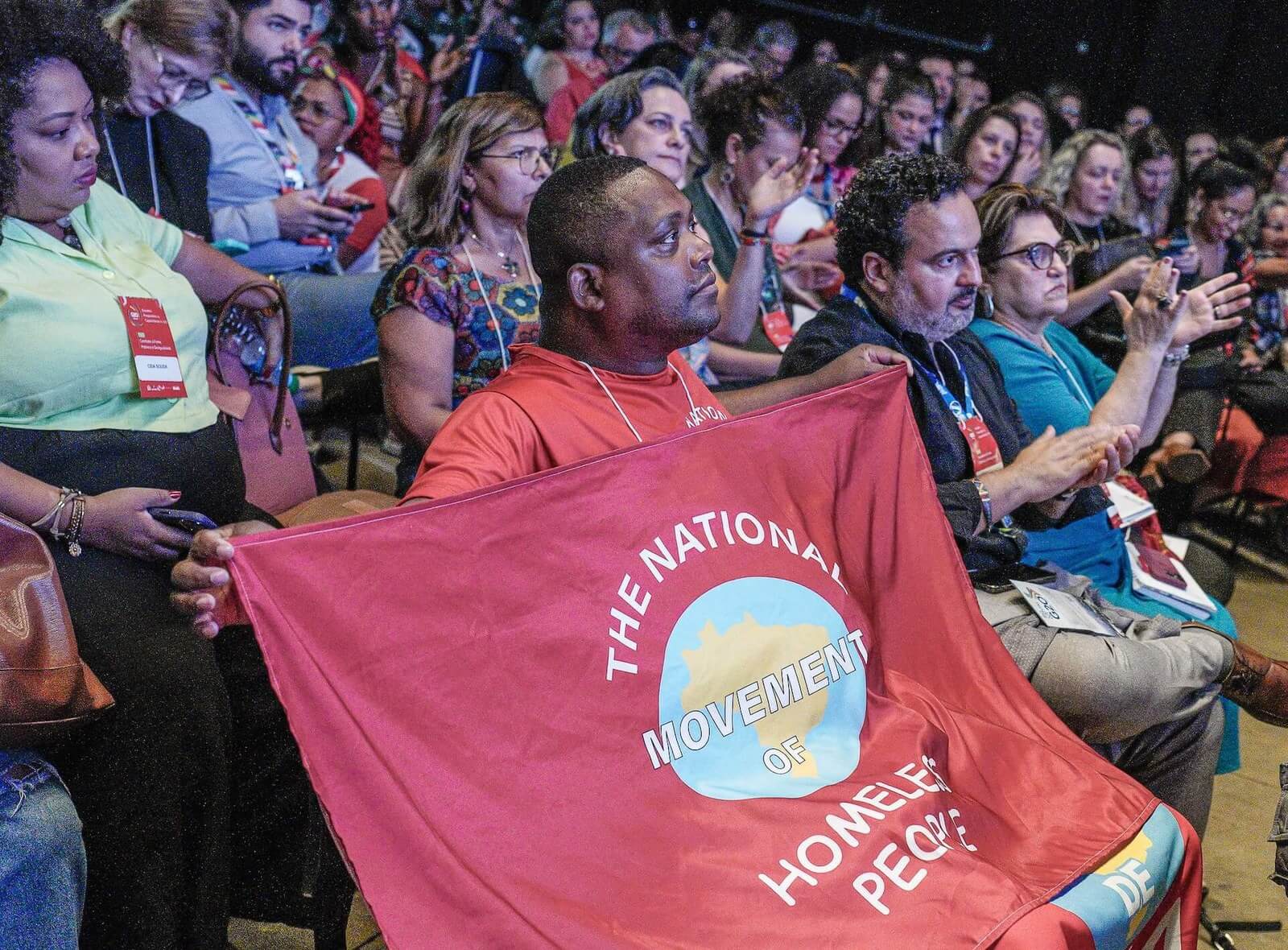G20 Brasil innovates by promoting the first Social Summit in the group's history
On November 14, the G20 Social Summit begins, making history with its unprecedented nature and for bringing global leaders closer to realities that may have been overlooked in G20 debates in recent years.

The expansion of social participation in discussions aimed at finding solutions to the challenges of the global economy will define G20 Brasil. Unprecedented in the forum's history, the Brazilian presidency will hold the first G20 Social Summit in Rio de Janeiro from November 14 to November 16, consolidating the commitment to ensure that different realities are included in the decisions made on the global economy and governance.
Throughout its G20 presidency, the Brazilian administration coordinated efforts to deepen the diversity of the forum's debates. During the process, it encouraged the Engagement Groups to present various demands directly to the authorities and ensured spaces for social movements and citizens from around the world to give their opinions, debate the central themes of the group, and include others, bringing people closer to global leaders.
The G20 Social Participatory platform, launched as part of this initiative, received thousands of contributions from citizens from different parts of the world, establishing a direct channel between the population and decision makers. The suggestions address crucial topics such as energy transition, the fight against hunger and poverty, and proposals for more sustainable and inclusive development.
"The defining image of G20 Brasil will be the G20 Social. It will be one of the great legacies that the Brazilian presidency will leave to the forum. I hope this image is as diverse as possible, respects democratic debate, honors the political process, and effectively contributes to improving people's lives," said Márcio Macêdo, Minister of the General Secretariat of the Presidency of the Republic of Brasil.
Macêdo argues that holding a large-scale event before the G20, with broad popular participation, directly involving various layers of society in discussions leading up to the G20 Summit, will set a precedent that could create a new paradigm for future editions of the event. "If it works out, it's already done; there will never be another G20 without the participation of the people," he emphasizes.
Uncovering urgent topics
Renato Simões is responsible for articulating social participation in the Presidency of the Republic of Brasil. Furthermore, Brasil has expanded the scope of involvement of the Engagement Groups, which have participated in the forum since 2010, to include social movements in the negotiations. For Simões, the challenge of the Brazilian presidency was "to bring to the table issues that are often swept under the rug."
"The fight against hunger and inequality is a central concern, and the most significant economies cannot turn their backs and say they have nothing to do with it. The same can be said about the big polluters who enhance the greenhouse effect and are mainly responsible for the climate emergencies we have been experiencing.
The G20 Social Participatory platform, launched as part of this initiative, received thousands of contributions from citizens from different parts of the world, establishing a direct channel between the population and decision makers. The suggestions address crucial topics such as energy transition, the fight against hunger and poverty, and proposals for more sustainable and inclusive development.
During the G20 Social Summit, self-managed and plenary activities will be carried out for each G20 priority axis: the fight against hunger, the plenary on climate change and just transition, and the plenary on global governance reform. Check out the full schedule.
"This moment is precious for social participation, as it is the first time within the G20 that the voices of a quilombola, an artisanal fisherwoman, a rural or urban worker, and victims impacted by a dam collapse are being heard. These people are often not heard, even in their own countries. They will be able to speak to the world. And this is an impact that no one can minimize," says Simões.
Guaranteed Continuity
Completing the Troika—a forum system that facilitates cooperation between the countries that chaired the G20, namely India (2023), Brasil (2024), and South Africa (2025)—the expansion of social participation in G20 debates has already been confirmed by the South African presidency. This decision was signed by Maurício Lyrio, Secretary for Economic and Financial Affairs at the Ministry of Foreign Affairs, and Sherpa of Brasil at the Forum.
"The South African president, to our satisfaction, is pleased with the social events and has already stated that he will continue this experience during his presidency," said Lyrio. The ambassador confirmed that Presidents Luiz Inácio Lula da Silva, from Brasil, and Cyril Ramaphosa, from South Africa, will attend the G20 Social Summit on November 16 to receive a document prepared by civil society outlining the forum's priorities.
*Translated by PGET-UFSC